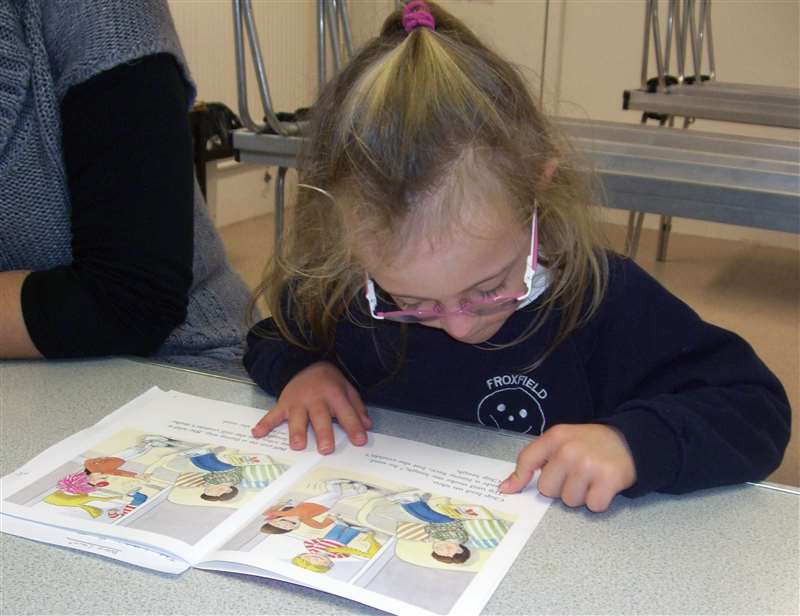What is RLI?
The Reading and Language Intervention for Children with Down Syndrome (RLI) is a teaching programme designed to improve the reading and language skills of children with Down syndrome aged from 5 years. It is delivered through daily, one-to-one teaching sessions where instruction is adapted to match the individual needs of each student.
RLI provides individualised reading and language instruction designed to meet the particular learning needs of students with Down syndrome. It is based on interventions that have been shown to be beneficial for other children experiencing language and reading difficulties, and incorporates the principles of best practice for all children as identified by current research and guidelines. It is designed for children with Down syndrome aged from 5 to 11 years with reading ages under 8 years.
Combining reading and language instruction
RLI combines the teaching of reading skills with explicit language instruction. The reading strand combines training in letter-sound knowledge, phoneme awareness and the application of these to reading and spelling (phonics), and sight word learning, in the context of book reading. The language strand teaches vocabulary, utilising visual approaches to introduce and reinforce the meaning of new words in a variety of different contexts, and practising speaking and writing using newly taught and learned vocabulary.
| Strand | Component | Duration |
|---|---|---|
| Reading | Easy level book reading | 2-3 min |
| Instructional level book reading | 5 min | |
| Sight word reading | 2-3 min | |
| Letters, sounds and phonology | 5 min | |
| New instructional level book reading | 5 min | |
| Language | Introducing new words | 5 min |
| Reinforcing the meaning of new words | 5 min | |
| Using new words in connected speech | 5 min | |
| Using new words in written language | 5 min |

" The girl I work with enjoys RLI too, we get a lot of fun out of it as it doesn't always feel like work! She loves to pick her own book to read and Friday consolidation day is always fun! RLI is a routine and has a structure which works well with myself and my pupil. I am looking forward to seeing what more she can do in the coming months. " (Teaching Assistant, UK)
" We think it's been fantastic for the child we work with. He clearly has learnt a lot of words to read and his vocabulary and understanding is now much greater. Staff in school have commented on the language he is using and was able to access the first part of the Salford Reading Test this time which is fantastic. We think he has clearly benefitted from the programme. " (Special Educational Needs Coordinator, UK)
Targeting individual needs and rates of progress
RLI is designed to meet the needs of individual students through an initial assessment process, and through ongoing assessments and record keeping. Books are introduced to match each student's abilities according to a fine grading of text difficulty in order to build confidence and steadily introduce new words and more complex grammar. New vocabulary, including nouns, verbs, adjectives and prepositions, is taught in themes. Themes can be chosen to link to curriculum topics or areas of personal interest.
Designed for delivery in school
RLI was designed to be delivered in daily one-to-one teaching sessions in school by teaching assistants supported by the class teacher and school special education needs team. It was evaluated in mainstream schools in the UK and has subsequently been implemented successfully in schools in the UK, the USA, Ireland and many other locations around the world.
Underpinned by extensive research
The intervention builds on extensive research into reading interventions for delayed readers in general and into the specific learning needs of children with Down syndrome. It was evaluated in the first major randomised controlled trial of an education intervention for children with Down syndrome.
Free presentation: Introducing RLI
Find out more about RLI in this free online presentation. Professor Sue Buckley introduces the intervention, its design and evaluation, and discusses what is involved in implementing RLI in school.


